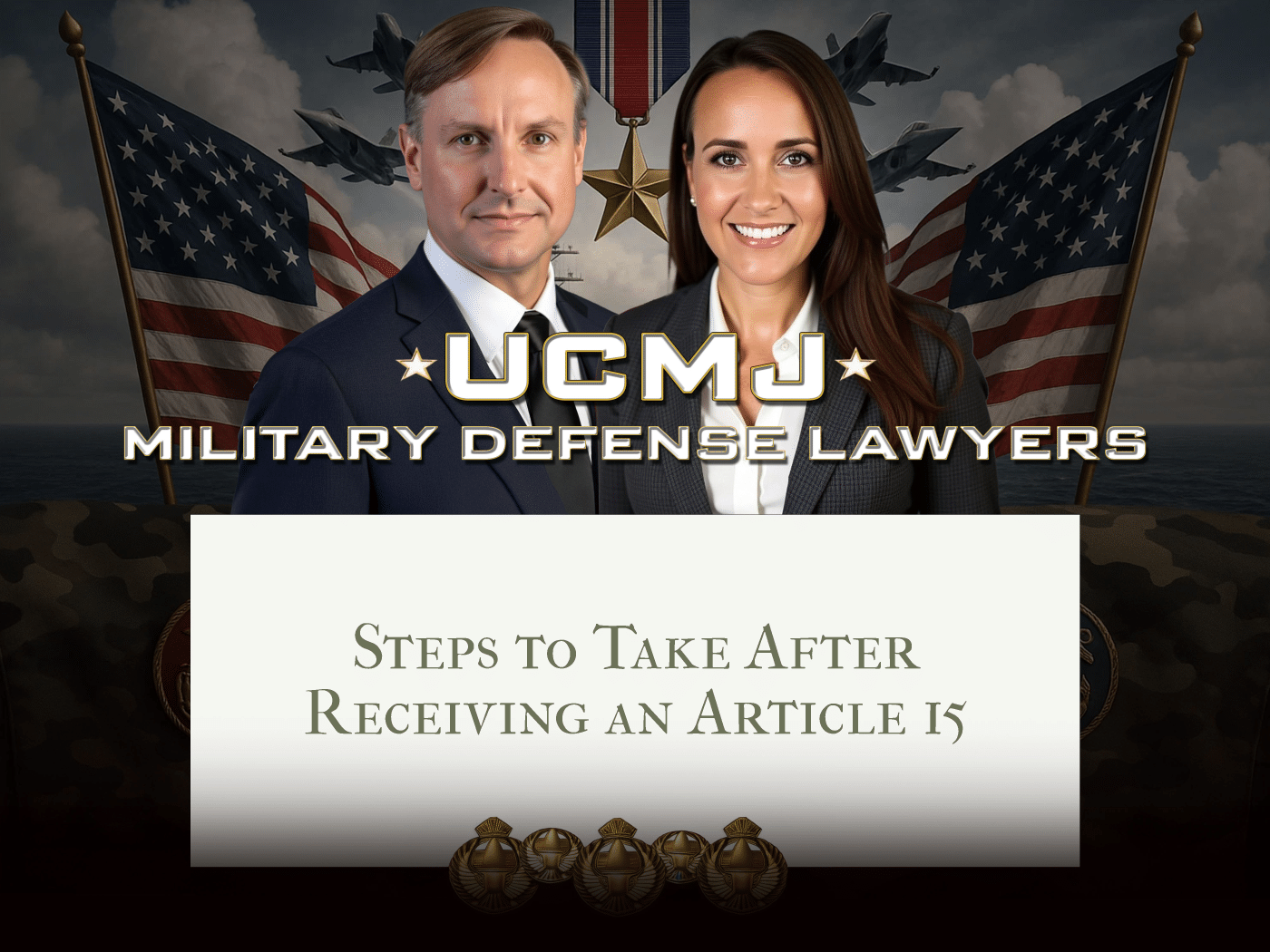Receiving an Article 15 can feel overwhelming and confusing. Whether it was expected or not, the impact on your military career and personal reputation can be significant. But there is hope, and there are critical steps you can take to guide your future in the right direction. Understanding your Post-Article 15 Actions can make a huge difference in how your situation unfolds. These actions are more than procedural—they are opportunities to recover, grow, and preserve the future you’ve worked hard to build. If you’ve recently gone through a non-judicial punishment process, you’re likely wondering what comes next. Taking time to understand your options, rights, and responsibilities post-Article 15 is key to regaining control and moving forward. In this article, we’ll walk through the process in detail to help you make informed, confident decisions during this challenging time.
Taking the Right Steps After Receiving an Article 15
The phrase “Post-Article 15 Actions” refers to the essential decisions and responses a service member takes after receiving an Article 15—a form of non-judicial punishment under the UCMJ (Uniform Code of Military Justice). These actions can make a meaningful difference in both the short-term disciplinary process and long-term military standing. After you’ve been issued an Article 15, you’ll want to assess factors like your right to appeal the commander’s decision, the impact on your career development, and how best to correct or mitigate the damage while maintaining a positive trajectory.
For instance, a young airman caught with a failed urinalysis might receive summary punishment affecting their pay and rank. How they respond afterwards—whether by appealing, seeking counsel, or demonstrating good conduct—can affect whether that incident defines their record or becomes a learning experience. Another example is a soldier who was punished for insubordination. If they accept the punishment blindly without reflection or corrective effort, their chances of promotion could be harmed. By contrast, following proper Post-Article 15 Actions such as correcting behavior and seeking leadership support could reverse that trend.
Why It’s Important to Know Your Options After an Article 15
Understanding how to navigate Post-Article 15 Actions is important because how you respond can significantly affect your future in and out of the military. From relationships with commanding officers to future reenlistment opportunities, what you do next matters. Post-Article 15 processes aren’t just paperwork—they involve strategic moves and personal decisions that shape both career prospects and personal development.
A poorly handled response can escalate into bigger issues. On the other hand, the right moves demonstrate maturity, growth, and an ability to adapt under pressure. These actions can include pursuing counseling, appealing unjust punishments, or volunteering for leadership-building roles. Your ability to recover doesn’t just restore your record, it also proves you’re resilient and committed, qualities that military leaders value and reward.
- Scenario 1: A Marine fails to report to duty and receives an Article 15. Without proper Post-Article 15 Actions, they are denied reenlistment opportunities.
- Scenario 2: A Navy petty officer is punished for dereliction of duty. They seek legal counsel, appeal the decision, and get a reduced punishment, improving their long-term outlook.
- Scenario 3: An Army private accepts the punishment but actively works to rebuild trust, eventually earning a respected position and mentoring others.
Breaking Down the Post-Article 15 Process Around the Globe
- Step 1: After receiving an Article 15, you have the right to accept or refuse it. Refusing may lead to a court-martial, so consider the risks carefully.
- Step 2: If you accept it, you are granted a hearing before a commanding officer. You can present evidence, witnesses, and a personal statement.
- Step 3: Following the decision, you may appeal within five calendar days. You must show why the punishment was unjust or disproportionate.
Smart Habits for Dealing with Post-Article 15 Consequences
Your Questions About Post-Article 15 Actions Answered
How Gonzalez & Waddington Helps Service Members After an Article 15
Gonzalez & Waddington works closely with military personnel navigating Post-Article 15 Actions. With years of experience in defending service members across all branches, they understand the ins and outs of the UCMJ and how to approach non-judicial punishment effectively. Their legal team provides crucial guidance, helping service members consider appeals, understand document filings, and recover professionally and personally. Their services focus not only on defense but also on empowering clients to build a positive future after disciplinary action. Clients often express a renewed sense of hope and clarity after consulting with the firm. With Gonzalez & Waddington on your side, you’re not alone during this process—you gain a skilled team committed to helping you move forward with strength and resilience.


